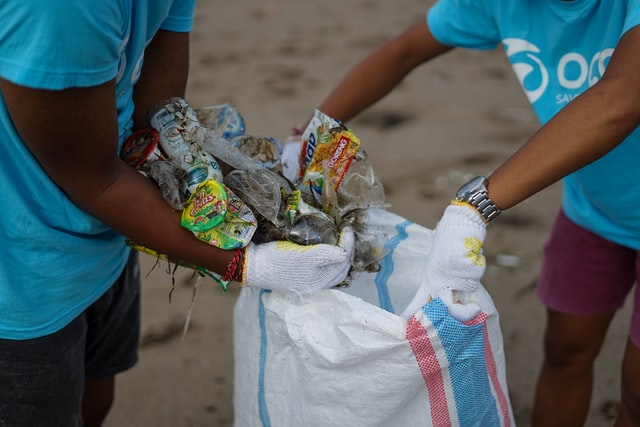
I don’t know what tipped the balance for me, but a few years ago, I realized I’d had enough.
I’ve had enough of saying there’s nothing meaningful I can do personally to address how humans are destroying the earth.
I’ve had enough of listening to people whine about how it’s too expensive to invest in clean energy.
I’ve had enough of worrying that the thing I’m doing isn’t the perfect solution to the problem, because it never is.
My realization led me through a series of steps:
1. Acknowledge the real problem
Our lifestyles are not sustainable. We are taking more from the earth than we’re giving back. Every time we burn fossil fuel, we borrow energy from the earth and send it into the atmosphere. We’re piling our garbage out of sight with no real plan for the fact that it will outlive us.
We’re incurring a debt, and now we have to pay it back or permanently destroy the environment that sustains us.
2. Make a personal commitment to invest
The first step in this process was to decide that our family would invest actual money in this process. This is money we won’t have for retirement. This is money we won’t have for fun vacations. This is definitely money we aren’t leaving to our kids.
I figure that we have lived on this earth taking and not giving back, and it’s time to stop that. Our money comes in part from the fact that we are taking from this environment and not giving back. At some point that balance has to be shifted.
3. Look at what I have control over
Another thing people whine about is that they can’t fix everything. Well, I have decided not to care. I can’t, in fact, fix certain aspects of our lives that are wasteful. But that doesn’t mean I am going to give up on the rest of it.
We have been looking at every aspect of our lifestyle and trying to pinpoint how we are taking more than we are giving back. Some of the things we’ve identified include:
- Using disposable plastic, which will persist long after we’ve been returned to dust
- Burning fossil fuels when there are alternatives
- Making habitual lifestyle choices that are wasteful
4. Stop worrying about other people
One of the huge lessons I’ve learned in life is that the only person I have control over is myself.
- I realize there are people who can’t afford the things we are doing.
- I realize there are others around me who are living wastefully.
- I realize that we really should have more political will to deal with this problem.
- I realize that people think I’m weird when I refuse to buy something because of its packaging.
I can’t control them. I can only control myself. I vote for politicians I think will do the right thing, but I’m not going to wait for them. I’m done waiting.
5. Embrace failure

Because let’s face it, I fail every day. I use some sort of disposable plastic every. darn. day. I really try not to, but it doesn’t matter. I also burn some fossil fuels pretty much every day, no matter how I try.
Embracing failure doesn’t mean giving up—it actually means the opposite. I know and admire some people who really don’t dispose of plastic. They really have altered their lives so radically, and I truly admire them. But the fact that I can’t be as successful as they are doesn’t mean I shouldn’t try.
6. Admit that this is an ethical issue, and do the right thing
This is not about politics. It’s not about virtue signaling. It’s not about saving money. It’s really not about almost all the things people discuss when they discuss climate change.
Changing how we interact with the earth is an ethical issue. If we use fuel unnecessarily, we are making the wrong ethical choice. If we choose to take a vacation rather than install solar panels, we are making the wrong ethical choice.
There is nothing subtle here: Anyone who knowingly makes choices that harm the environment when they could choose something better might as well by throwing rocks through their neighbors’ windows. It’s harmful, it’s wrong, and we have to stop.
Now.
This is what I tell myself:
Stop worrying about whether you can solve all the problems. You can’t.
Stop making excuses about how you’re used to this lifestyle. So what.
Stop saying that you can’t do something positive because others can’t. You are yourself, not anyone else.
Stop worrying that you’ll be judged by others for your decisions. So what else is new?


